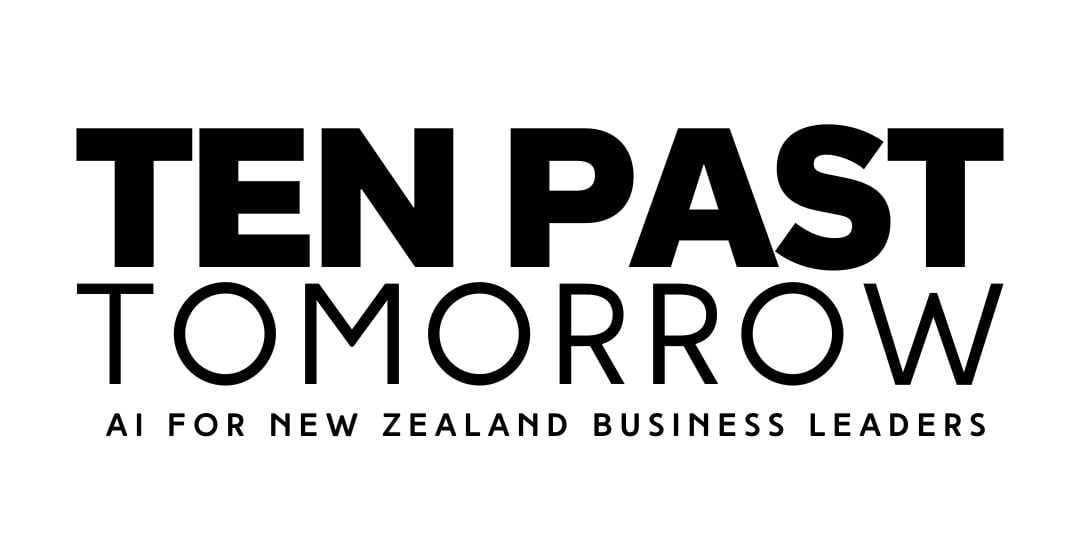The Double-Edged Sword of AI in Recruitment
The time is ten past tomorrow; an ideal time to delve into the world of recruitment. First, let's sprinkle in some stats…
-
85% of companies say their average hiring time is four weeks.
-
The average cost of a bad hire is $14,900.
-
75% of employers admit to having hired the wrong person for a position.
Mix those stats together, and it's no wonder companies are increasingly leaning on artificial intelligence to find their ideal candidates.
Sapia AI, an Australian-based startup, is making waves in this space with their AI-driven chat system designed to screen, assess, and rank potential hires.
I've spent some time sitting and reviewing Sapia AI's advantages and disadvantages, which form the basis of this article.
However, I encourage you to view this review as a broader commentary on using AI tools in HR/recruitment, rather than just a review of Sapia exclusively.
Sapia AI purports to provide a swift, unbiased, and engaging hiring process that predicts job performance. But is it all sunshine and rainbows? Let's take a closer look...
How it works
Sapia AI is an AI-powered chat interviewer that screens, assesses and ranks candidates for various roles. It has four main features that work together to provide a fast, fair and engaging hiring process:
- AI Chat Interview: This feature allows candidates to complete a structured interview via text message chat, where they answer questions related to the role and the company. The AI analyzes their responses and extracts language signals that indicate their personality traits, behavioral competencies and language skills. The AI then ranks the candidates based on their fit for the role and the company culture. The rank is sent to the employer.
- Video Interview: This feature allows candidates who pass the chat interview to record a video interview, where they answer more questions or showcase their skills. The video interview is designed to be low-pressure and convenient, allowing candidates to be their best selves. The video interview is also reviewed and scored by the AI, using facial and vocal analysis, then sent to the employer.
- Insights and Feedback: This feature allows candidates to receive personalized insights and feedback after completing the chat and video interviews. The insights include six aspects of their personality profile, such as openness, conscientiousness and agreeableness. The feedback includes one coaching tip to help them level up their skills. The insights and feedback are also shared with the employers, who can use them to make better hiring decisions.
- Integration and Automation: This feature allows Sapia AI to integrate with leading ATS providers and HR systems, as well as build custom integrations.
Sapia AI's upsides
Sapia’s AI-driven approach claims to offer numerous advantages over traditional recruitment methods like résumé screening, phone screening, or in-person interviews.
A few key benefits that stood out to me were:
-
Transparency & Accountability: Something which struck me as unique (not just to this discussion, but one of the most prominent concerns about AI in general) is that Sapia says they use explainable rule-based models in their AI. The implications of this are that their system remains auditable and clear; a contrast to the opaque black-box algorithms of most AI platforms today. This allows employers and candidates alike to understand the rationale behind Sapia AI's decisions, and to challenge or correct them as needed.
-
Fairness & Unbiased Assessment: Sapia AI claims to incorporate fairness into its model building process, ensuring relevant, valid, and impartial assessment criteria. They say that constant bias testing across various dimensions (e.g., gender, ethnicity, age, and disability) guarantees that the system doesn't discriminate or favor candidates based on irrelevant factors.
-
Blind Chat Interview: By offering a text-based chat interview devoid of bias-inducing visual or auditory cues, Sapia AI aims to concentrate on the content of a candidate's responses, not their appearance or vocal tone.
-
Insights & Feedback: Sapia AI provides feedback for candidates' on their personality traits, behavioral competencies, and language skills. This really appeals to me, and contrasts the traditional interview process where candidates rarely get post-interview feedback or coaching tips to learn more about themselves and improve their skills.
-
Seamless Integration: Compatibility with leading ATS providers and custom integrations, as well as full data sovereignty, is a great feature, making the platform nimble and flexible.
-
Time & Cost Efficiency: Taken at face value, Sapia’s platform could conceivably slash hiring costs and timeframes while still maintaining high candidate satisfaction rates.
Sapia AI's shortcomings
Despite its many obvious advantages, Sapia AI (and the AI-driven recruitment discussion in general) isn't without its share of limitations.
As with any new technology, risks and uncertainties come into play when using AI for hiring.
Here are the factors to be aware of that stand out to me:
-
Potential Bias & “Blind Chat” Deficiencies: Commentary in the HR space points out that if a company aims to diversify its workforce, relying on AI-based hiring techniques like chat and video interfaces might be insufficient. Unconventional candidates, whose unique personalities, interests, characters, and work ethics make them a perfect fit, could be missed by AI systems lacking human insight.
-
Communication Limitations: I can’t help but think that current AI will still struggle to grasp the finest nuances and subtleties of the human interactions in the recruitment process, such as body language or emotional context. This could result in an inability to fully appreciate a candidate's unique qualities or interpret their responses accurately.
-
Language Barriers: Similarly to the above, there have been concerns expressed by AI researchers in the HR and recruitment space about how fair AI tech is for candidates not using their native language. Will the AI recognise a non-native speaker, and if so will its review and rank compensate for the added complexity the candidate experiences speaking in a second language?
-
Ethical & Legal Hurdles: I wonder whether navigating the murky waters of data privacy, consent, and ownership (particularly when handling sensitive personal information) may present legal and ethical challenges that could tarnish the reputation or functionality of AI recruitment providers like Sapia?
-
Adaptability Concerns: Sapia AI will have to continuously update and adapt to remain relevant in a rapidly evolving market, adjusting for new skills, roles, industries, and cultural norms that impact the hiring process. This is not a small task, and could potentially result in the hiring process being compromised for underserved niches and industries.
A final word
Sapia AI and similar AI-driven recruitment platforms have the potential to revolutionize the hiring landscape. They could provide candidates with a transparent, fair, and engaging process that eliminates bias and predicts job performance while also slashing hiring time and costs for companies.
However, with possible communication limitations, ethical and legal issues, and the need for constant updates, Sapia AI and other AI platforms in the recruitment space shouldn't be considered an out-of-the-box silver bullet.
Clearly, there's a bright side to the advancements being made in the AI recruitment arena. However, it's equally evident that a few kinks still need to be worked out – and tackling some of these issues might prove to be a tall order.
Ultimately, organizations contemplating the adoption of AI-powered recruitment should diligently gauge its efficacy, pledge to employ it ethically, and – as with any AI resource – ensure that they harmoniously meld its insights with good old-fashioned human instinct.



Got something to add? Chime in below...